Hello, I’m Robert Capa, may I take a picture?
How would Robert Capa and Joe Pulitzer have reacted to the law that came into force on March 15 in their country of birth, Hungary? Let us guess that they would have been stunned. A provision in the new Hungarian civil code forbids taking pictures without the permission of everyone in the photograph.
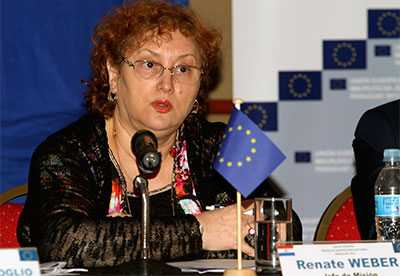
European Parliament reaffirms principles, but action lacks
The European Parliament, meeting in a plenary session in Strasbourg, France, adopted today a resolution stating that “changes in EU member state’s media laws that make it easier for governments to interfere in the media should be monitored every year at EU level.”
Red flags in the European Union press freedom debate
The European Union enjoys waving the banner of press freedom overseas. However, it is sometimes at a loss when it has to define its approach to press freedom among its own member states. Last year, the EU tried and failed to convince the Hungarian government to radically amend its highly controversial media law. The conservative…
Greek far-right party casts shadow on Europe press freedom
The celebration Tuesday of the 50th anniversary of the Association of European Journalists (AEJ) should have been a joyful and lighthearted affair. Dozens of journalists from all parts of the European Union had traveled to Brussels to share memories, new projects, champagne, and petits fours.
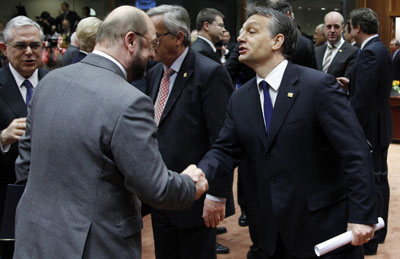
The global impact of EU media policies
The state of press freedom inside the European Union has a significant effect on press freedom outside the EU. That was the message that CPJ Senior European Adviser Jean-Paul Marthoz and I delivered this week when Brussels’ leading think tank, the European Policy Center (EPC), hosted us for a policy dialogue marking the launch of…
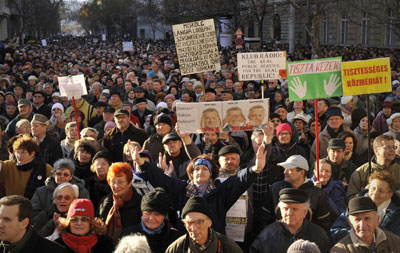
Criticism of Hungary’s media controls keeps growing
“Klubrádió solely wants to provide news and present different opinions and never meant to play any emblematic role. But, because of the decision of the Media Authority, it has became the symbol of free speech in Hungary,” stated the broadcaster’s CEO, András Arató, on Sunday when addressing thousands of demonstrators who gathered in central Budapest…
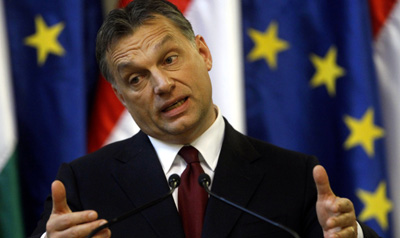
Hearing: Hungary undermines EU with new media law
When you see the top echelon of the EU press corps–The Guardian, Die Sueddeutsche Zeitung, Le Soir, and others–gathering in front of a meeting room at the European Parliament in Brussels you know that you should follow them inside. These seasoned correspondents select their assignments with a keen sense of urgency, and when they skip…
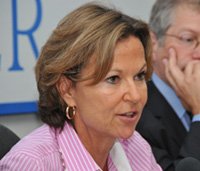
Family’s ‘truth teller’ speaks: Kati Marton at CPJ
Author and CPJ board member Kati Marton’s parents worked as foreign correspondents in Budapest during the Cold War in the 1950s, exposing Marton to the grit of living in a Communist state. She described feelings of alienation and displacement she felt as a child to an audience at CPJ’s New York offices today. “We lived…
